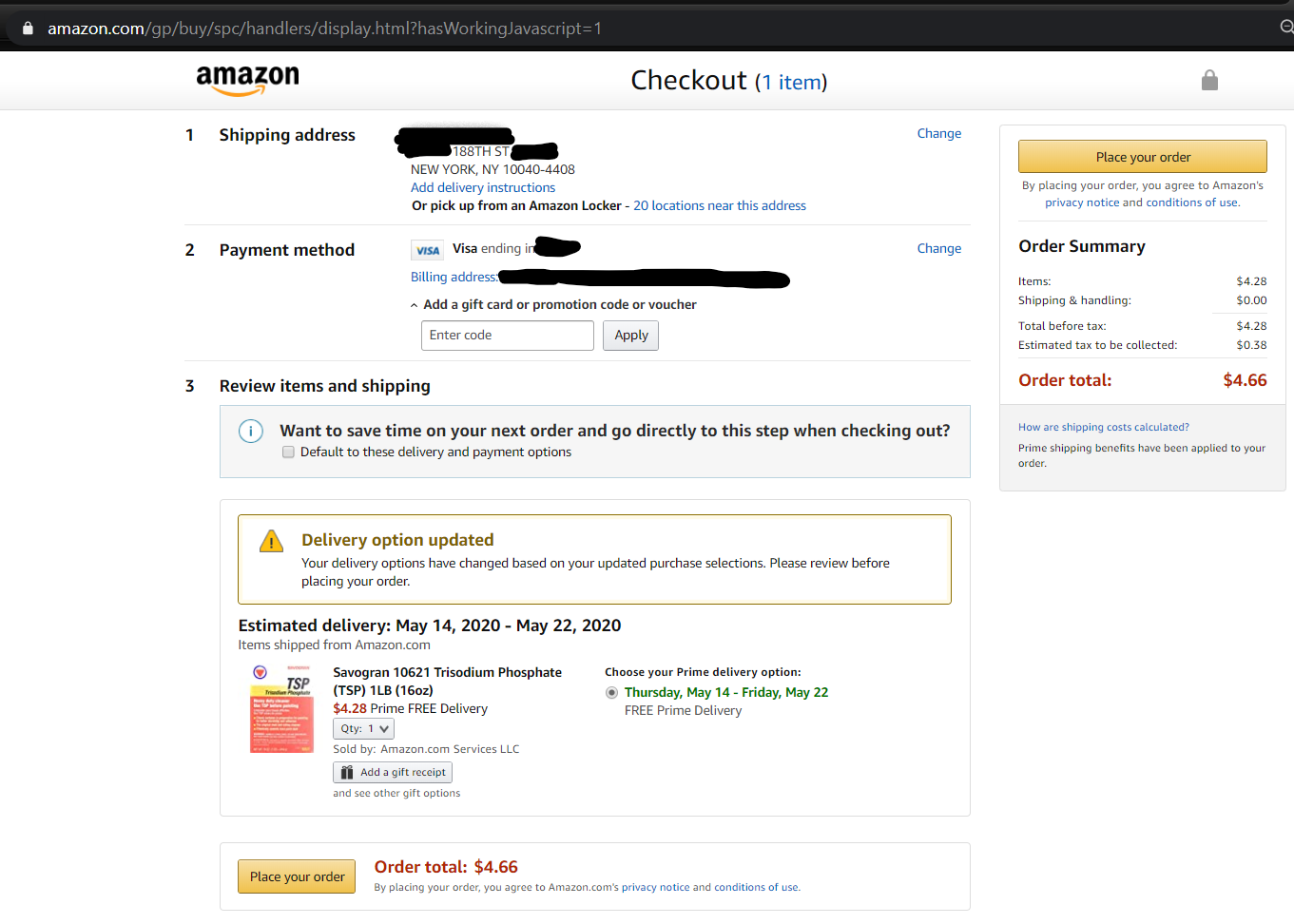Be sure to check out our Before using your equipment Cleaning Guide!
Please review dosage and disposal requirements for all chemicals before use.
What is TSP? Is it safe to clean with?
TSP stands for Tri-Sodium Phosphate and yes, it's safe to clean with. TSP is actually found in a lot of processed foods (store-bought breads, breakfast cereals, deli meats etc) and up until some recent developments in dishwasher detergents, was found in nearly all of those major brands as well.
Why do I need to use TSP on my new steel? Why doesn't everyone suggest this type of cleaning?
Typical brewing cleaners like Caustics and Alkalines (even PBW) don't deal with oils and residues from manufacturing very effectively, but non-chlorinated TSP does a great job at cutting residues, oils, grease, or polishing waxes.
Since typical kitchen gear like stainless steel pots, pans, and utensils do not get subjected to the same type of long term fermentation cycle as brewing gear does, those manufacturers tend not to worry about residual manufacturing oils/greases/waxes as they are Generally Regarded As Safe (GRAS). Since TSP was previously the main component in dish detergents, home users were already getting them clean that way. You can, however, certainly still clean dishware up with TSP the same way!
For brewing gear, you are looking for "Beer Clean", which is a more sanitary definition of clean than normal kitchen and dishes need to be. Beer's flavor will affected more by random odors. Check out the link below for more information from the Cicerone program on what Beer Clean means!
https://www.cicerone.org/us-en/blog/cleaning-glassware
What if I can't find a non-chlorinated TSP?
Never use Chlorinated TSP as this can cause irreparable damage to your steel. TSP generally is non-chlorinated but the blends that contain it should clearly label it on the packaging. If you cannot get a hold of a non-chlorinated TSP then you can use "TSP 90" / "TSP Free" alternatives. If you cannot find a TSP alternative, you can try other food-safe degreasers but these tend to be less effective.
Can I use dish soap instead?
We do not recommend using dish soap to clean your brewing gear. Most dish soap often contains fats/lipids (typically either animal fat or vegetable fats) to better clean dishes. While this is effective on dishes, it can affect your beer much like a dirty glass can, hurting head retention and diminishing hop aroma. These fats and lipids can also affect your passivation, preventing an even chromium oxide layer formation. Dish soap is not formulated strong enough to be used in replacement of TSP or as a cleaning compound as most contain fragrances and dyes. If you do end up using dish soap on your gear, make sure to clean with an alkaline solution (like PBW) and take additional care/attention to really clean that off, especially before passivation.
How do I know if I got it all?
After every round of TSP Cleaning, be sure to first dry and then check to make sure any of the manufacturing residues have been removed. This can simply be done with a white paper towel, if still present, then black marks will show on the fresh towel after cleaning and start another round of removal.
How should I dispose of TSP?
TSP is no longer used in dishwasher detergents due to the volume of TSP ending up in the water systems and the environmental impact from that. Scrubbing your kettle with a TSP mix once is not nearly on the same scale as every home running a dishwasher twice a week, but we still recommend disposing of it in a more environmentally conscious way. The most accessible way to dispose of TSP in the home would be to pour it down the toilet so it gets treated properly. This is even safe on septic systems. Never dispose of used degreasing rinsates like TSP into lakes, streams, storm drains, or open bodies of water. This is our planet and we need to do our best to take care of it.
Where can I find TSP? What about New York law?
TSP is most commonly found in hardware stores near cleaning products or paint thinners. It is also easy to find online via sites like Amazon.
Some local governments (like New York) have banned the inclusion of TSP in household cleaning detergents and fertilizers. Fortunately, Tri-sodium Phosphate (TSP) is still available as a chemical but is less common in hardware stores (near the paint thinners.) It is still easy to find online via sites like Amazon (like in the photo below.)
Comments
Article is closed for comments.